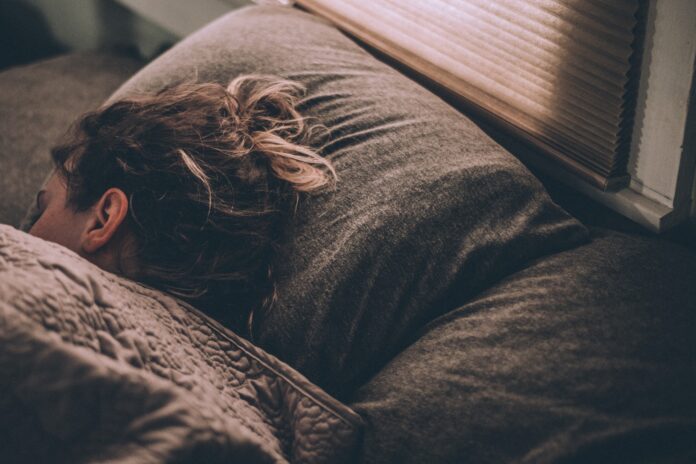
-
Cult Beauty has teamed up with Dr Deborah Lee, Dr Fox Online Pharmacy to reveal we should get an extra 1.75 – 2.5 hours of sleep in winter.
-
In winter the optimum bedroom temperature for sleep is 18.3 degrees Celsius.
With the darker evenings and mornings and the colder weather, many of us would love to spend the winter months hibernating. Well, Cult Beauty has teamed up with Dr Deborah Lee, Dr Fox Online Pharmacy to share the good news!
Dr Deborah Lee reveals that we should get more sleep in winter than summer, ideally an extra 1.75 – 2.5 extra hours of sleep in the winter compared to Summer. This means a healthy adult might sleep between 7-10 hours per night in the winter.
Why you need more sleep in winter than summer
There are several reasons why our bodies may need more sleep in the winter, some of the key reasons are:
-
Colder temperatures mean the body is working harder to maintain core temperature and metabolism. It’s an interesting fact that you burn more calories when working out in the winter than in the summer
-
It’s also true that the immune system works less efficiently in colder temperatures, meaning you are more susceptible to flu and respiratory viruses.
-
We tend to exercise less outdoors when it’s cold. Exercise stimulates the immune system. Not exercising can make you feel sluggish, under the weather and tired.
-
We tend to eat less fresh fruit and vegetables in the winter. We feel cold and tend to crave comfort foods which are often high-carb and high fat. The spikes and falls in blood sugar levels can make us feel fatigued.
The optimum winter sleep temperature
Did you know that your body temperature falls by 1-2 degrees, 1-2 hours before you fall asleep? It’s important to allow this to happen and not to be overheated when trying to get to sleep, or during the night. The drop in body temperature is a signal to the brain and body that it’s time to go to sleep.
The optimum bedroom temperature for sleep is 18.3 degrees Celsius.
Being too hot or too cold disrupts sleep, leaving you feeling tired and unrefreshed in the morning. It’s a good idea to have a thermostat in the bedroom and ensure the temperature stays at the right level throughout the night.
Tips for getting a good night’s sleep in the winter
-
Good sleep hygiene routine
Wind down for sleep, no blue light devices within 2 hours of bedtime. Have a warm bath or shower. Dim the lights. Have a set bedtime and wake-up time and stick to it as much as possible. Do something relaxing before turning out the light such as reading or writing in a journal. Don’t have caffeine or alcohol close to bedtime. Switch off your mobile phone and put it in a drawer or separate room to avoid distractions overnight.
-
Wear cotton pyjamas
Wear pyjamas made from natural, not synthetic, fibres, such as cotton. Wear socks in bed in the winter. This helps to draw warmth to your feet and helps lower your core temperature, which is what happens when you fall asleep. Using a hot water bottle has a similar benefit.
-
Use a sunrise alarm clock
This mimics the sunrise at dawn by slowly filling the room with white or yellow LED light. This switches off melatonin production and stimulates the release of cortisol. Gradually introducing light helps your brain to slowly wake up when it’s still dark outside. Waking slowly is believed to reduce sleep inertia – that groggy feeling we often have when we first wake up.
-
Use a lightbox
Experts suggest sitting in front of a light box for 20-40 minutes, within an hour of waking up, can be helpful. Ideally, use a 10,000 luxe light box, and sit with it positioned 16-24 inches away from the face. Don’t look directly at the light. A light box can help with insomnia, depression, jet lag and seasonal affective disorder. It’s safe and effective but it can take several weeks for the benefits to become apparent.
-
Get outside as soon as you can in the mornings
Getting outside as soon as you wake up in the morning helps to regulate your body’s internal clock through exposure to natural light, boosting mood, and energy levels, and aiding in the production of vitamin D. This exposure suppresses melatonin production, making you more alert during the day, and encourages physical activity, which can improve sleep quality by reducing stress and promoting better sleep patterns.
To shop the best range of sleep aids please visit: https://www.cultbeauty.co.uk/body-wellbeing/wellbeing/sleep.list
Help keep news FREE for our readers
Supporting your local community newspaper/online news outlet is crucial now more than ever. If you believe in independent journalism, then consider making a valuable contribution by making a one-time or monthly donation. We operate in rural areas where providing unbiased news can be challenging. Read More About Supporting The West Wales Chronicle




















